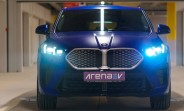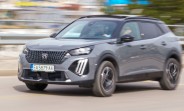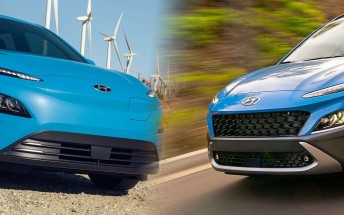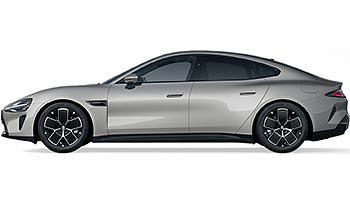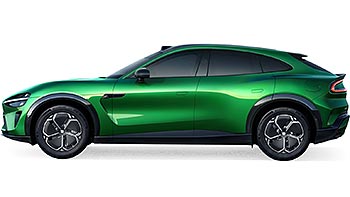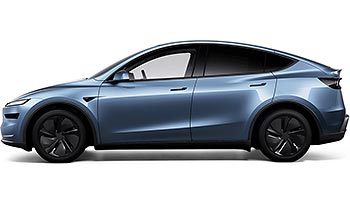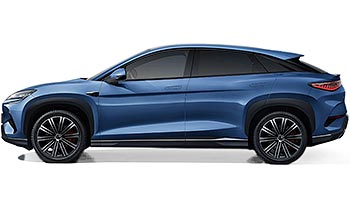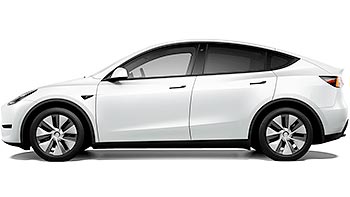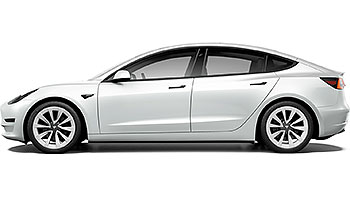Ford Mustang Mach-E proves EV durability with 92% battery health after 250,000 miles

One of the most asked questions about electric cars is about the long-term health of their batteries. Critics point to battery degradation as a fatal flaw, suggesting that after a few years, an EV will be left with a fraction of its original range and a huge battery replacement bill.
A 2022 Ford Mustang Mach-E from Florida is the best real-life proof that it's not necessarily the case, demonstrating remarkable resilience. After driving for over {{250,000}} miles in just three years, its battery pack is still running at 92% of the original capacity.
The vehicle belongs to David Blenkle, who uses the all-wheel drive electric crossover for his private car service, a business that demands constant and reliable transportation. When he bought the Mustang Mach-E, his motivations were practical: he wanted to cut fuel costs, reduce maintenance downtime, and lower the overall cost of ownership compared to a traditional gasoline-powered vehicle. Driving roughly 230 miles every day, 365 days a year, Blenkle's Mach-E has far exceeded what many would consider normal use, making it a perfect real-world test for modern EV technology.
The fact that the battery has lost only 8% of its capacity after such intensive use challenges many common misconceptions. Blenkle notes that battery life is the primary concern he hears from passengers. "The biggest misconception I encounter is about battery life and range," he says. "Then I show them my odometer." His experience was so positive that it caught Ford's attention. Matthew Gabrielli, the Mustang Mach-E Chief Product Engineer, confirmed the vehicle's performance, stating that this example provides compelling evidence that modern EVs are engineered for exceptional longevity and reliability.

The financial argument for going electric is very powerful in Blenkle's case. Compared to a similar gasoline-powered Ford Escape SUV, his switch to the Mustang Mach-E has resulted in an estimated $8,700 in fuel savings alone. The bulk of these savings comes from his charging habits. "I have a Ford home charger, and I plug it in every evening, set to charge when my electricity rates are lower," Blenkle explains. This strategy of charging at home during off-peak hours maximizes savings, although on exceptionally busy days, a quick top-up at a public DC fast charger is sometimes necessary to complete his routes.
The cost benefits extend to maintenance, or more accurately, the lack thereof. Blenkle sticks to Ford's recommended service schedule, which includes routine tire rotations, regular multi-point inspections, and replacing the cabin air filters. What's truly remarkable is the condition of the braking system. Thanks to the regenerative braking feature, where the electric motor slows the car down and recaptures energy, the Mach-E is still using its original factory brake pads after more than 250,000 miles.

This particular Ford Mustang Mach-E is an impressive example, but it is not an anomaly. It is part of a growing collection of data from high-use electric cars that are defying old expectations. Stories of a 100,000-mile VW ID.3, or ride-share Teslas and a Hyundai Ioniq 5 with over 360,000 miles are becoming more common, painting a clear picture: the era of questioning the fundamental durability of electric vehicles is coming to an end.
Related
Reader comments
TBH, considering the horrendous cooling of this car, I would be aware of every single digit added to the degradation meter. It's ridiculous how poorly this car was designed, developed and axed in terms of future hardware updates - Ford clearly...
- 28 Jul 2025
- dNZ
- Anonymous
Please stop lying. My car newer could travel >900km at a single refilling. And there are no big automakers without an EV model, so another lie from you. About the EV battery, Its basically a gigantic laptop battery, so everyone should know ...
- 26 Jul 2025
- 8@P
After such a distance, what is the power loss of a gasoline engine? It is over 30%. The battery problem no exist. It is a rumor spreaded by carmakers to fight again EVs when they are not producing them.
- 24 Jul 2025
- n1@






